Don’t forget to register for Join Rise Be’s 2025 Adult Leadership Summit! Our Peer Support Specialist, Quinn, will be teaching a workshop on community building!
We can’t wait to see you there!
Register here: https://form.jotform.com/243124168277155
24/7 Hotlines: Call or text 988 or text 741741
Don’t forget to register for Join Rise Be’s 2025 Adult Leadership Summit! Our Peer Support Specialist, Quinn, will be teaching a workshop on community building!
We can’t wait to see you there!
Register here: https://form.jotform.com/243124168277155
Join Rise Be is running an Emerging Adult Leadership Summit in 2025! It is free and open to folks 18 to 29 years of age.
Save the date and click here to register: https://form.jotform.com/243124168277155

Fun fact: earlier this year, our Peer Support Specialist, Quinn, was a keynote speaker at Join Rise Be’s Young Adult Leadership Summit. During their presentation, they spoke about how building a community got them to where they are now. Check out highlights from their presentation HERE!

Evening Spark by @lauradonofrioart
“”Why do you like thunderstorms?” ” Because it shows that even nature needs to scream sometimes.”” -E.D.
Check out more of Laura’s art HERE!
Winter is upon us! As the weather gets colder, many activities have to move indoors. Check out our self-care tips for the winter season!
Since we will have to spend more time indoors during winters, one thing you can you is catch up on reading. Reading can help get your creative juices flowing as you immerse yourself into the story you are following.
When going outdoors, it is important to dress appropriately for the weather. You don’t want to get sick!
Just recently, I went for a walk, and underestimated the weather. While I was wearing jeans and a hoodie, it wasn’t enough; I was quite cold.
Grab, your jacket, hat, and gloves, and you’ll be even more prepared for the extra cool air.
The oldest tradition in the book! Make yourself a nice, hot cup of cocoa, and sip away. If you like marshmallows, throw some in the cup for extra flavor!
Some people get very lonely when the cold season traps them inside. Send a card to a loved one to let them know you’re thinking of them!
After making yourself a cup of hot cocoa, sit by the fireplace for extra warmth. If you don’t have a fireplace in your house, crank up your heaters. Not too much, though, to avoid a high electric bill lol. Another alternative is taking a warm or hot shower.
Finally, get cozy and watch your favorite movies. If you can’t make it to a theater, streaming services have a plethora of films you can check out. If you don’t stream, YouTube is a great alternative!
The NAMI Connecticut Young Adult Connection Community is having their annual friendsgiving event! If you are 18 to 35 years old looking to connect with others, this event is for you!

The event is free, but RSVP is required to estimate ordering food and supplies. Please email Torry at tberard@namict.org with questions.
You can register using this link: NAMI Friendsgiving Event.
CMHA is looking to hire a Employment Specialist for our New Britain location.
As a 2022 Hartford Courant Top Workplace and one of the largest behavioral health care providers in Connecticut, we have 40 years of experience in delivering mental health and addiction services to over 7,300 children, adolescents, and adults annually.
Internal mobility is a focus at CMHA with 6 members of our leadership team growing from individual contributors to Senior Leaders.
The Employment Specialist primary responsibility to collaborate with assigned caseload of clients with prolonged mental and/or co-occurring illnesses to develop psychiatric rehabilitation goals to assist them to live, work and be independent in the community. Acts as liaison and broker, advocating with employers and other employment services to meet the full range of client employment needs.
COMPENSATION RANGE- $20-$29 an hour
Starting salary will be determined based on relevant years of experience
Click HERE to learn more about the Employment Specialist position and to apply!
See CMHA’s previous open job position HERE.
CMHA (Community Mental Health Affiliates) is looking to hire a Peer Navigator for the CT Stay Strong Team.
As a 2022 Hartford Courant Top Workplace and one of the largest behavioral health care providers in Connecticut, we have 40 years of experience in delivering mental health and addiction services to over 7,300 children, adolescents, and adults annually.
Internal mobility is a focus at CMHA with 6 members of our leadership team growing from individual contributors to Senior Leaders.
The Peer Navigator provides initial and ongoing outreach and support to potential and current clients. They support, teach, advocate and empower individuals with behavioral health and Substance use disorders; which includes developing person centered recovery goals. Liaison with local emergency rooms, detox centers and treatment facilities. They engage in traditional and recovery oriented systems navigation, coordination of services, skill building and eliminating any barriers to care. The goal is to empower and educate clients to rediscover their ability to pursue and achieve a higher quality of life that allows them to prosper in the community.
Compensation: $18.00 – $22.00 per hour
Starting salary will be determined based on relevant years of experience
Click here for more information and to apply!
Last week, we participated in Fresh Check Day at CT State Norwalk! It was great to meet all the amazing students who stopped by our table.
Our activity at Fresh Check Day was called “I am… but I am not”. This activity is all about breaking the stigma around stereotypes. Students wrote “I am [ethnicity, gender, or other], but I am not [stereotype]” on a piece of paper and stuck it on the board. Check out the board below!

But wait, there’s more! Check out Therell, our Social Media Lead, and Quinn, our Peer Support Specialist, posing with the board!


A semicolon is used when an author could have chosen to end their sentence, but chose not to. The author is you and the sentence is your life.
People say your high school years are some of the best years of your life. They are filled with Friday night football games, junior prom, and pep rallies – core memories that are made during this time. My high school years, however, were some of the worst years. Instead of making lifelong memories with friends, I was held hostage to my bed, plagued with intense depression and anxiety.
I didn’t leave the house much in high school. I spent 4 years completing school online, barely getting by. Some days were extremely dark; I couldn’t speak to anyone, couldn’t eat, and couldn’t imagine waking up the next day to the life I was living. Thankfully, I found help and began therapy. I would be lying if I said my first counseling sessions were productive. In reality, I spent the first few hour sessions crying, unable to get a word out. Very slowly, I gained the strength to open up to my therapist. I began to put in the work to take back control of my life. The work I have done in therapy was hard and long, and even still today, ongoing.
If you told 16 year old me, the girl who didn’t want to keep living, who missed out on high school because of her mental health – that I am thriving in college, she would not believe you. Sometimes it is still difficult for me to recognize and celebrate the many accomplishments I’ve gathered since that extremely dark time in my life. But I am being mindful to self-reflect and recognize how much progress I have made every single day.
Being on the other side of the couch has truly brought things into perspective. When I entered the role of Marketing Intern at Positive Directions, I felt so many emotions that are still difficult for me to put into words; bittersweet and proud come to mind. Being in the counseling environment as an employee and not a client is a feeling I can’t describe. I feel so incredibly lucky to have this opportunity.
Looking back, I can now say that I don’t recognize high school me. But I am grateful for her, and immensely proud of her; I would not change a thing. She gave me the passion and drive to one day pursue a career where I have the ability to help people, exactly like I was helped.
This is your sign to keep going and to stay alive. There is a light at the end of the tunnel; I know because I’ve reached it.
A semicolon is used when an author could have chosen to end their sentence, but chose not to. The author is you and the sentence is your life.
~ Juliana
As you may have seen in a previous post, we are launching a new Discord server soon! The Discord server is part of our transition into the Connecticut Support Group. Our transition has a large focus on community and peer support, so it only made sense to incorporate Discord!
We wanted to give you all sneak peek at some of the channels that will be in our Discord server! Check out the Reel below for a little sneak peek!
As seen in the video, we will have a general chat, a humor chat, and a creative expressions chat.
As we get closer to a full transition, our excitement grows to share all of these awesome things with you! Stay tuned for updates!
~ The TurningPointCT Team 🧡🩷🩵
The TurningPointCT project will be undergoing quite a few changes throughout the next few months. One of those changes will be a name change. We will soon be changing our name to the Connecticut Support Group. Our social media platforms will also be altered so that they reflect the new project name.
On top of that, our website will be revamped to have an entirely new look!
We’re very excited to go through this transition with the TurningPointCT project. We can’t wait for you all to see what we have in store! Stay tuned as we provide you with more updates throughout the coming weeks!
~ The TurningPointCT Team 🧡🩷🩵
Fall is here! Scary movies, cooler weather, and pumpkin spice lattes are upon us.
Fall is my favorite season, mostly due to the average temperature. It isn’t hot anymore like in the summer, and it isn’t super cold yet like it is in the winter. I feel most comfortable in the cooler than hot atmosphere. Also, Halloween gives me an excuse to eat my favorite candy without having to feel bad about it, lol.
What is your favorite season? ~ T
Something’s coming soon, friends. Stay tuned for some exciting updates from the TurningPointCT team!
Check out the Teen Awareness Group’s final piece of advice for incoming high school freshmen: “Be honest with your parents”.
Don’t Be A Bully Month was in August, but the overall idea applies all year ’round. As a new school year kicks off, let us remind each other to a be a friend, and not a bully. Bullying is not okay; we need to lift each other up and not put each other down.
Check out Ben’s advice to incoming high school freshmen.
Every day we are given various tasks to complete whether that be at work, home, school, etc. We all have schedules that we have to follow but what people are often lacking despite having a schedule is having a routine. Routines are practices that we regularly follow and can set in place for ourselves rather than the schedules we conform to every day.
Routines are really important because they help reduce stress and the uncertainty that we may face during the day. Having practices that we do every day allows for more feelings of control and security rather than waiting for the unexpected. Here are some ways that you can incorporate routines into your life.
Meal prepping or writing out a meal planning calendar can be very beneficial in establishing a routine and diminishing the stress of what to buy at the grocery store and what to eat each day. Meal prepping is a really great way to do this especially if you are on the go. Planning also allows you to make healthier choices because you won’t have to make quick decisions and you will already have the ingredients to make a meal rather than go out to eat.
Having a wind-down routine can greatly improve your quality of sleep which in turn reduces stress levels. Creating a routine that sets your space up for sleep will allow you to start to calm down before bed and signal to your brain that you need to go to sleep. Some different things that you can incorporate into your nightly activities are reading a book, creating a skincare routine, drinking calming tea, and reducing screen time.
The morning is such a crucial time of day because your mornings set you up for the rest of the day. Having a good morning routine will allow you to start your day on the right foot and bring you into the rest of your day with calm energy. Different practices that you can add to your morning to create a routine are doing a workout or stretching, meditating, getting fresh air, and journaling.
The mental health benefits of routine can apply to everyone, but specifically, people going through addiction recovery can greatly benefit from having a routine. Planning allows people to feel more in control and slow down the decision-making process. Routines allow us to fill our day with productive thoughts and actions which allow for fewer stressors, preventing a potential relapse.
Creating routines that work for you is the first step to establishing this new practice. There are many different ways to create routines and ways that you can help yourself stick to them.
Writing out your routines can hold you accountable and allow you to see where they fit into your current daily schedule and tasks. Some different ways to do this could be getting an hourly planner that allows you to write out your day or make a to-do list of the different things you want to incorporate into your daily routine.
Routines are only beneficial if they make sense for you. If the mornings are super busy, then make a small list of things that you can do in the morning. This can be as simple as writing out the order in which you would like to do your current tasks like brushing your teeth, then making breakfast, then getting dressed. This will allow you to have the order of your routine consistent without adding anything new.
Fully changing the way you currently do things can be very overwhelming if you want to add and change your current routine. Start with small changes and slowly incorporate all the different things you want to change in your day. For example, if you want to change your nightly routine to minimize screen time and prioritize winding down, do not fully change the way you go to bed now. Start with dimming your lighting earlier in the night and decreasing your screen time from an hour to thirty minutes. Small changes are sustainable and lead to big differences over time.
Prioritizing our mental health is so important and a great way to do this is through establishing routines. Determine what you want your routine to be, make changes if necessary, start slow, and you will be on your way to having a more calm and consistent day.
~ Alexa S.
Another student from the Teen Awareness Group at Staples High School gives some advice to incoming high school freshmen! We wish all students the best of luck in the new school year! You got this!
Click HERE to see advice from more students!
Check out our flyer below to see our ideas for content in September 2024! Topics include Suicide Prevention Awareness, 9/11, Hispanic Heritage, and more.
DM us on Instagram or email us at turningpointct@positivedirections.org if you would like to share a blog post, video, or art around any of the topics below! If you want to share content around something else, you are totally free to do so!
We look forward to hearing from you!
Back to school can be a very stressful time. As a student, it can be very overwhelming to have new classes, teachers, classmates, and more. It is an adjustment to begin a new school year even if you are in the same school with the same people year after year. It is important to set yourself up for success at the beginning of the school year and push through the challenges that come with starting a new year. Although the start of the school year can be nerve-wracking it can also be new and exciting. Students have the opportunity to make new friends, learn from new teachers about new topics, and start fresh. Navigating this change brings up so many different feelings, so here are some different ways to manage the start of a new school year.
Preparing for the start of a new school year will allow you to go into the year organized and ready. Some different ways to do this are to get a planner and start filling in the planner with information from your syllabi. In addition to having a planner, it can be very useful to color code your subjects. For example, you can make your notebook and folder for science the color green and when you are adding science assignments to the planner, also write that in green. This can help coordinate your subjects and keep everything consistent.
When starting a new school year it can be easy to find yourself wishing for familiarity and consistency. Remind yourself that you were in this same position last year and were able to adjust. Keep an open mind about new teachers, classmates, and class subjects. Allowing things to come to you as they are without preconceived notions will give you a positive experience and an easy transition.
Everyone walks into the wrong class on the first day. It is normal to get lost or confused in the first couple of weeks of school. Classes are harder and that comes with uncertainty. In these moments remain confident and continue to push through. It takes time to achieve success and staying strong will help you to accomplish all your goals. Always remember to be kind to yourself and remember that adjustment is temporary and shortly routines will be established.
Asking for help is so important during times of transition. Seeking support gives us strength and allows us to feel less alone. Ask for guidance whether that be from a teacher, classmate, parent, or a professional. Talking through difficult situations and gaining skills equips you to deal with future challenges and make future transitions easier.
~ Alexa
Check out advice from Phoebe to incoming high school freshmen.
See more advice from other high schoolers HERE!

Our surroundings profoundly impact our mental health. Various environmental factors, from socioeconomic conditions to the presence of nature, can influence anxiety levels. Understanding these influences is essential to managing and improving mental well-being.
Socioeconomic status plays a significant role in mental health. People living in low socioeconomic conditions often face chronic stress due to financial instability, lack of access to quality healthcare, and unsafe living environments. These stressors can increase anxiety levels.
Financial instability creates a constant state of worry about meeting basic needs such as food, shelter, and healthcare. This persistent uncertainty can lead to chronic anxiety, making it difficult for individuals to focus on other aspects of life. The stress of financial strain can also exacerbate physical health problems, further increasing anxiety.
Inadequate access to healthcare means that mental health issues often go untreated, exacerbating anxiety and other mental health disorders. People in low socioeconomic conditions may not have the resources to seek professional help, leading to prolonged suffering and worsening symptoms.
Unsafe living environments, characterized by high crime rates and poor housing conditions, also contribute to heightened anxiety. The fear of personal safety and the stress of living in substandard conditions can perpetuate a cycle of anxiety and depression. Constant vigilance and the inability to relax in one’s own home significantly impact mental health.
Addressing these issues through targeted public health efforts, including initiatives led by MPH online Texas programs graduates and MS in Public Health graduates from Johns Hopkins University, can make a substantial difference. Regions with higher crime rates and poor infrastructure require focused interventions to improve living conditions and, consequently, mental health outcomes. Graduates from programs like the University of Melbourne’s Master of Public Health can also bring global perspectives to address these challenges effectively.
Nature has a remarkable ability to reduce anxiety. Studies have shown that spending time in natural settings, such as parks, forests, or near bodies of water, can significantly lower stress levels. Nature provides a calming effect, offering a respite from the hustle and bustle of urban life.
Exposure to green spaces can lower levels of cortisol, the stress hormone, and improve mood. Activities such as walking, gardening, or simply sitting in a park can provide a sense of peace and relaxation. Green spaces promote physical activity and can improve overall mental health.
Incorporating nature into daily life, even in small ways, can profoundly affect mental well-being. Urban planners and policymakers are increasingly recognizing the importance of green spaces in cities, promoting mental health through accessible natural environments. Community gardens, rooftop parks, and tree-lined streets can enhance the quality of urban life.
Practices such as nature therapy and mindfulness in natural settings can also reduce anxiety. Engaging in activities like forest bathing, where individuals immerse themselves in a forest environment, or practicing yoga in a park can help lower stress levels and promote relaxation.
Pollution, both air and noise, has a detrimental impact on mental health. Exposure to high levels of air pollution can increase anxiety and depression. Pollutants can affect the brain’s chemistry, leading to heightened stress responses and anxiety.
Air pollution can lead to inflammation and oxidative stress in the brain, contributing to anxiety. Chronic exposure to pollutants such as particulate matter and toxic gases can worsen mental health conditions, making it crucial to address environmental quality. Public health policies aimed at reducing air pollution can significantly benefit mental well-being.
Noise pollution, common in urban areas, disrupts sleep and increases stress levels. Chronic exposure to noise, such as traffic or industrial sounds, can contribute to ongoing anxiety. The constant background noise creates a stressful environment, making it difficult for individuals to relax and unwind.
Efforts to reduce pollution and create quieter, cleaner living spaces can significantly improve mental health. Implementing green policies, promoting sustainable practices, and enhancing urban planning can help create healthier environments.
The social environment, including relationships and community support, is crucial in managing anxiety. Strong social networks provide emotional support, reducing feelings of isolation and anxiety. Communities that foster connection and support can help individuals feel more secure and less anxious.
Strong social networks provide a buffer against stress. Having friends, family, and community members to rely on during tough times can alleviate anxiety and promote mental resilience. Positive social interactions and a sense of belonging are essential for mental health.
Conversely, social isolation and lack of community support can increase anxiety levels. Loneliness and the absence of a supportive network can make it difficult to cope with stress, leading to heightened anxiety. Isolation can exacerbate feelings of helplessness and despair.
Building strong, supportive communities is vital for mental health and well-being. Initiatives such as community centers, support groups, and social events can foster connections and provide a safety net for individuals struggling with anxiety. Encouraging community involvement and volunteerism can also enhance social bonds and improve mental health.
Your environment significantly influences your anxiety levels. Factors such as socioeconomic conditions, access to nature, pollution, and social support all play a role in shaping mental health. By understanding these influences, you can improve your surroundings and promote better mental well-being. Creating supportive, clean, and nature-rich environments, alongside robust public health initiatives, can help reduce anxiety and enhance overall quality of life.

NAMI Connecticut will be hosting several trainings on September 22nd and 23rd for teens and young adults in the state (see one below).
In these trainings, you will learn how to offer peer support to many groups of people. These groups include students, the LGBTQIA community, and more.
If you are interested in applying for these trainings, click HERE!
Check out more advice from Teen Awareness Group members Zach and Abby at Staples High School.
Happy August 2024! Check out our flyer below to see this month’s topic ideas! If you or other teens and young adults in Connecticut that you know are interesting in sharing content with us, DM us on Instagram or email us at turningpointct@positivedirections.org.
Friendly reminders:
College life is all about balance. Balancing classes, social life, clubs, and spending time with friends. For me, the hardest thing to balance is being healthy. Healthy has a different meaning to everyone, but I tend to focus on eating/drinking, exercising, and mental health when thinking about my overall health. College has proved to be a challenge when trying to balance my life, especially these three different aspects. There are so many different things going on in our daily lives that make it hard to focus on all aspects of our health, so I am here to tell you the small things that I try to do to achieve this balance.
Eating a balanced diet is so important because we need to fuel our bodies with the proper foods to keep going throughout the day, but it is almost impossible to resist eating all of the amazing food around us. As I have been trying to navigate my diet in college, I have found a couple of ways that work for me in maintaining balance. First, I love going out to dinner and it is one of my favorite ways to treat myself and spend time with my friends.
Freshman and Sophomore year I really wanted a change of pace from the dining hall, and now that I am a Junior, I can get too lazy to cook some nights. When I don’t feel like cooking or I just want a change of pace, I go out and order what I want, simple as that. However, I do not make a habit of going out every night. I go out when I want or need to and try to pick a healthier option!
In addition, I love sweets and eating dessert after I make dinner. Something that I like to do is put chocolate on my fruit and freeze it. I also love the cookie brand Sweet Loren’s because they are gluten and dairy-free, have a lot less sugar, and clean ingredients. Creating and maintaining a balanced diet is hard and I am still trying to figure out different methods that work for me, but I have started feeling better physically and mentally as a result of small changes I have made in my diet.
Exercising is crucial for college students because it not only strengthens our bodies but also improves our concentration and performance on assignments. I have found it very hard to make sure that I have time in my day to exercise because we have so many different responsibilities and sometimes exercising is put on the back burner. I find that the best way to get exercise is moving your body in a way that makes you happy, not that necessarily burns calories. If I am excited about exercising I am happy to make the time in my day.
My favorite way of exercising is walking. I think the best part about walking is getting to be outside and getting away from being in a classroom or the library. I love the change of scenery and getting to appreciate how beautiful nature is. Another way I like to work out is through workout videos. In my Freshman year of college, I was terrified of the gym. Although I warmed up to going to the gym and really like doing group fitness classes like cycling, I still like to do workout videos from the comfort of my room. My favorite workout platform is Peloton because I found that I like the classes, music, and instructors better than other things I have tried in the past, but there are so many different options online.
My suggestion is to try different things and see what works for you whether that be an app or a fitness instructor on YouTube. Working exercise into our daily schedules is so important and there are so many easy ways to get some sort of exercise every day, keeping us moving and healthy.
Lastly, mental health is really important and often we forget about checking in with ourselves. Sometimes I feel like my schedule is in control of me rather than me controlling it, which leaves me with little time for myself. Although it is great to keep busy, it can get to be too much too quickly. I didn’t start to take time for myself until recently and I have noticed such an improvement in my mental health since.
Something that I love to do as I mentioned above is walking, and when I’m walking I always listen to my favorite podcast. This distracts me from thinking about all the tasks I have to do later, dwelling on drama, or how I should start studying for my next test. I forget about myself for a little bit and focus on what other people have to think and talk about.
Another thing that has made a difference in my mood is writing down three good things that happened to me that day before I go to bed. This can be as big as getting an A on a test, to as small as my coffee being particularly good that day. I end my day with positivity and reflecting on what has gone right for me in the last 24 hours rather than going to bed thinking about what went wrong. This has made me appreciate the little things in life and put me into a positive mindset.
These small changes that I have made in my life have improved my mental health and brought me into a happier state of mind.
Balance is hard to achieve in college, but with these changes I have made in my life, I hope you are able to see how small actions can lead to big changes. Creating changes in our physical and mental health will allow us to be better students and give us the motivation to do all the things that we need to get done in a day. As you progress through the semester, I hope you can take some of my tips and start to determine what works for you in achieving a balanced and healthy life in college.
– Alexa S.
The month of July has a couple of awareness days that we want to highlight.
Check out a flashback flick below from Zach, a Teen Awareness Group member at Staples High School. He offers some advice to incoming high school freshmen!
As classes resume next month, we want to help you have a successful school year!
Welcome to summer! When we think of summer we often think about having a break and being able to relax from the pressure of daily life. Although that is true, it has also been found that cortisol, our stress hormone, is higher in the summer months than in the winter months. In the summer our daily schedules often change in addition to the added stressor of heat. This is why it is crucial to maintain our mental health in the summer months, and here are some ways that you can do that!
Exercising is so important not only for physical health, but also for mental health too. Just 30 minutes of exercise a day can make such a large impact on stress and overall well being. The best exercises to do to lower cortisol levels are low impact workouts like walking, pilates, and yoga.
The best part of the summer is that we can finally get outside after being indoors in the winter. Being in green spaces greatly helps in lowering cortisol levels which is why it is so important to be in nature. A great activity to do is taking a walk in a park or on a trail which will really help in relaxing and decompressing.
Summer is a great time to catch up on sleep because of the change in daily schedule and not having to wake up early for school. Not only does getting 7-9 hours of sleep lower cortisol levels, but creating an atmosphere and time to wind down before bed is crucial in lowering stress levels. The best way to do this is to limit screen time before bed and wind down by reading a book or doing self care activities like skin care and warm baths.
Having free time in the summer gives us an opportunity to do the different things that we can get too busy to do during the year. Spending time with friends and family, playing games, going on adventures, etc, all help in reducing stress and filling our days with fun rather than work.
Practicing mindfulness is a great way to reduce cortisol levels and manage everyday stressors. There are many different ways to practice mindfulness like journaling, mediation, and more. There are guided meditations online and on music platforms like Spotify and Apple music. If guided meditation is not for you, deep breathing is always a good practice that you can do anywhere at any time. A popular deep breathing exercise is 4-7-8 in which you breathe in for 4 seconds, hold for 7 seconds, and breathe out for 8 seconds.
If you are experiencing anxiety, depression, or need to talk to someone, consider seeking professional help. Professionals will be able to help with navigating stressful situations and giving different techniques to help you manage whatever you are struggling with.
– Alexa S.
Check out our content themes for July 2024! Topics include, but are not limited to, Independence Day, Minority Mental Health, International Self Care Day, and more!
Send us a DM on Instagram or email us at turningpointct@positivedirections.org if you or other teens and young adults in Connecticut are interested in sharing a blog post, video, or art around these topics. Content can be something new you have recently created, something you made a while ago, or something pre-existing that you relate to.
Check out the Media Room and Our Stories to what your fellow peers have shared!
Every June, we recognize Men’s Health Month.
Men’s emotional, mental, and physical health can often be overlooked, which should never be the case.
Your physical health matters. Your emotional health matters. Your mental health matters.
Forever, and always. 🧡🩷🩵
Happy Pride Month! During the month of June, we take time to emphasize the importance of acceptance in oneself and each other.
The LGBTQ+ community often face discrimination for expressing who they are, which should never happen. We are all human. We should all work together to be inclusive, no matter how similar or different we may be to each other.
Never be afraid to be who you are. ❤️🔥
A few weeks ago, our Peer Support Specialist, Quinn, tabled at Band Together, a Young Adult Mental Health Awareness Fair.
At the fair, they got to meet many awesome teens and young adults in Connecticut, and watched musical performances from Diggity and Blonde Otter!
June is here, which means the end of another school year and the beginning of summer!
Check out our flyer below for some content ideas for June 2024, which includes Pride Month, Men’s Health Month, and more!
As always, content does not have to limited to what’s on the flyer, it can be about anything you feel comfortable sharing!
Email us at turningpointct@positivedirections.org or DM us on Instagram if anything piques your interest!
Join Rise Be is running The RISE Leadership Training, a FREE 4-part training series that will occur every Thursday in March from 10 AM-3:00 PM in Middletown, CT.
The learning experience is designed to promote recovery leadership among young adults currently receiving DMHAS Young Adult Services. Core topics include recovery, the transition to adulthood, social-emotional growth, and leadership. Students will also practice stress-management techniques to support trauma recovery. We will use a semi-structured curriculum with space for self-directed learning through creative expression and dialogue.
Click HERE to register!
BSEB (Birth Support, Education & Beyond, LLC) is a comprehensive perinatal support program that comes to you. The team of specialists works with pregnant and parenting youth, young adults and persons with significant trauma histories, mental health diagnoses, substance use disorder and vulnerable populations. BSEB works with these population for various stages of pregnancy, parenting and beyond.
If interested in learning more or filling out a referral form, click here.


Did you know today is Random Acts of Kindness Day? Here are 10 ways you can make an impact today, and everyday.
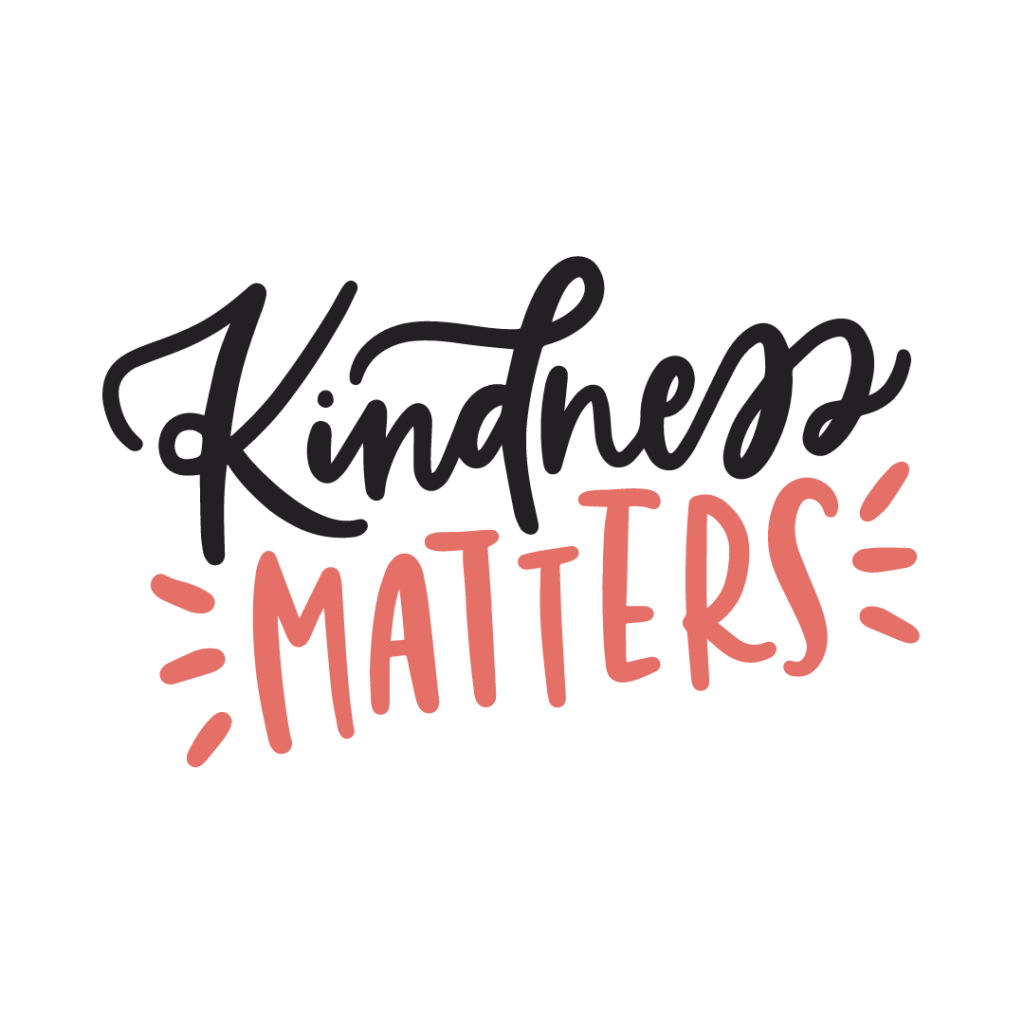
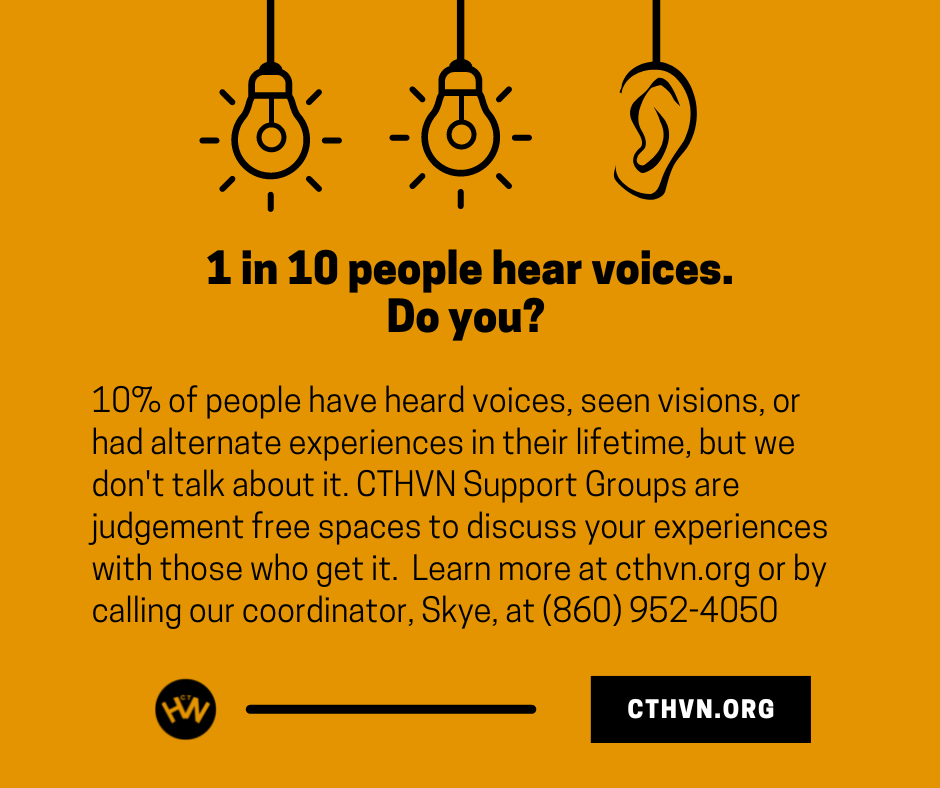
The Connecticut Hearing Voices Network (CTHVN) is designed to enhance current opportunities for people who hear voices, see visions or have other unusual sensory perceptions to find and build supportive peer communities through support groups and community education. CTHVN offers free supports groups to those who need a space to discuss their experiences. Use this link or call (860) 952-4050 for more information.
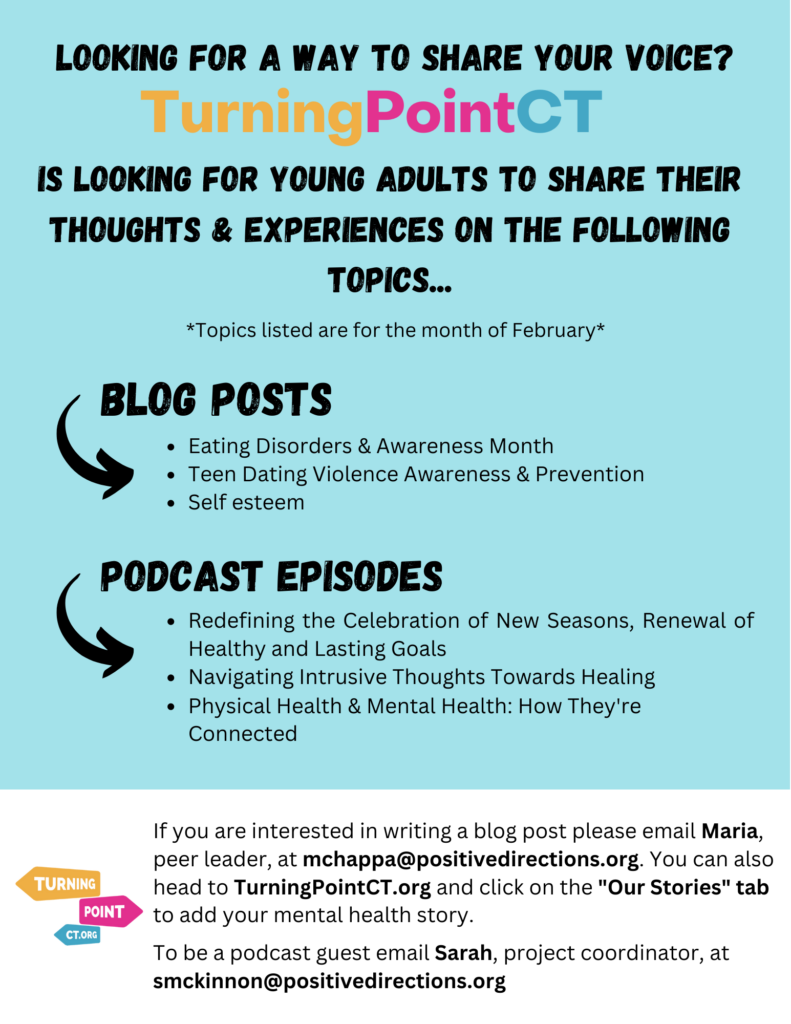
We are looking for Young Adults to contribute to TurningPointCT! Unsure of what to write about? Check out the flyer for ideas for the month of February. Not much of a writer? Not a problem – we have a podcast too. Podcasts are released bi-monthly and hosted by our team members. We’d love to have you join. Share Your Voice!
At TurningPointCT we want to create a safe space for our peers! Especially make your life a little easier!
– The TurningPointCT Team
According to the Department of Homeland Security (DHS), human trafficking is:
The “…[use of] force, fraud, or coercion to obtain some type of labor or commercial sex act.”
The short answer is that anyone can be human trafficked. But, there are certain populations/circumstances that may be more vulnerable to it. For example:
An individual of human trafficking has more than 3 of the following identifiable characteristics. There are many individuals who present almost all these characteristics:
There are some individuals who are not aware that they are a victim of trafficking. They are commonly brainwashed into thinking the “love” is real. Therefore, the use of their language may appear more subtle, however, loyal. The bullet points above still apply to these individuals.
There is a hand symbol that signified the need of EMERGENT help.
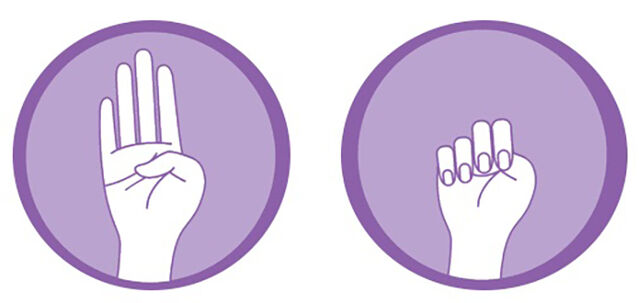
If you see someone doing this hand gesture, call 911. If you feel as though someone is in danger, call 911 (even if they don’t sign this).
Utilize the National Human Trafficking Hotline. If you are reporting human trafficking, you can leave an anonymous tip. If you are the person needing help, they will connect you to recourses and bring you to safety.
Be sure not to confront the trafficker or alert the victim. This may make it harder for the victim to receive help and can put you in ganger.
National Human Trafficking Hotline
Have you ever experienced anxiety around the environmental crisis we are currently facing? Well, turns out there is a term for it…eco-anxiety. Read the article below, written by a Yale student, to learn more about eco-anxiety and what it means.
There’s no right or wrong way of giving back to the community! Feeling grateful has led me to look not only inward but also outward of how I can help.
Gratitude is the quality of being thankful; readiness to show appreciation for and to return kindness.
Over the holiday season, I have been thinking a lot about what it means to be privileged. Unlike some, I was lucky enough to grow up with a pantry that was always full and new school supplies each year. This year in particular, I felt an overwhelming sadness for those who do not have the same. I think it can be very easy to go about your day and not realize everything you have at your disposal that others may not. In the new year, I have decided I want to give back to my community.
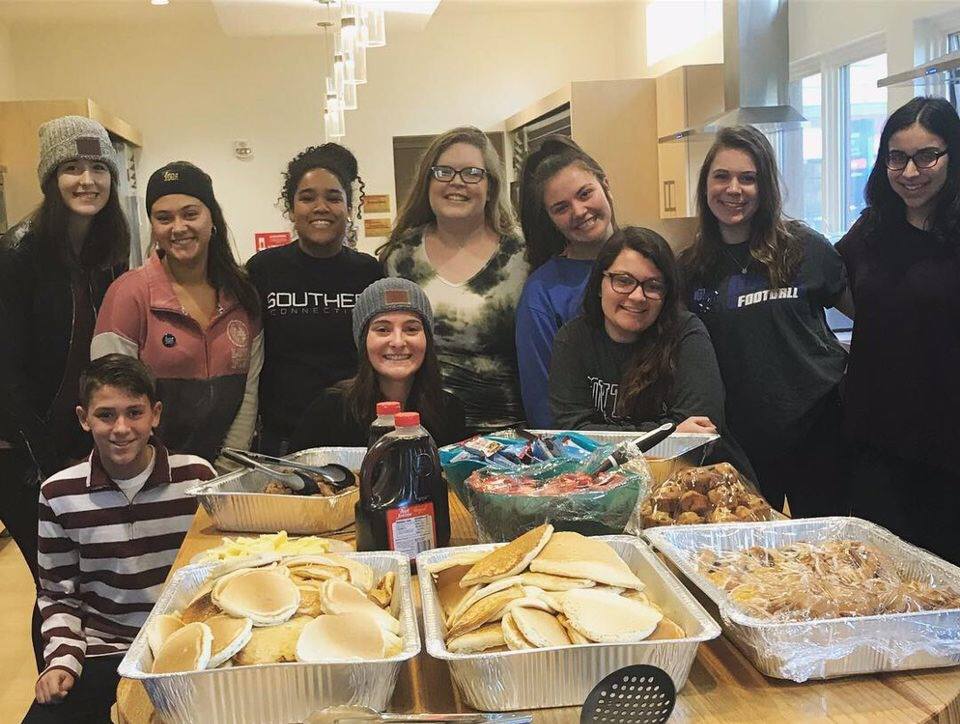
There is no right or wrong way of giving back! Here are some ideas to get you started…
Whatever you do, big or small, giving back will never go unnoticed!
-Maria
Working in the medical field is such a strange job. When you really sit down and think about it, medical providers have to be a jack of all trades. At the same time, they must be an expert in the area they choose to work. Looking out into the workforce, there are very few careers like it. When you feel drawn to work in healthcare, it can become all consuming. It’s like a shiny new toy sitting under the Christmas tree. You okay with that toy everyday for about a month or two. Then after the month is up, you don’t pick up the toy again. This is the case for some people in healthcare. But, for some they’ve found the trick to longevity.
The trick to continuing to pick up that toy and to continue playing with it for years, is to constantly be curious. Look at the toy as a whole, not on a granular level. If you choose to look too closely too fast, you will miss the chip in the paint, the loose button or the broken sound effect. Healthcare is not much different. Working in the medical field teaches you how to experience patients as a whole. When you begin to look at them too granularly, you don’t see the full picture. You may miss the full prescription bottles sitting on the nightstand. Or the lack of food in their fridge. Providers see patients on what could be their worst day. It is easy to forget to a moment and think about the effect their situation may have on their mental health.
The most valuable lesson to be taken away from those experiences is to provide compassion and comfort. Look at the big picture; while also treating the symptoms at hand. For providers with passion, the toy never becomes less shiny. It becomes something you strive to improve upon. You go to the store and find the right paint color, the string needed to sew up the button, and we bring it to a hobby store to have the sound effect fixed.
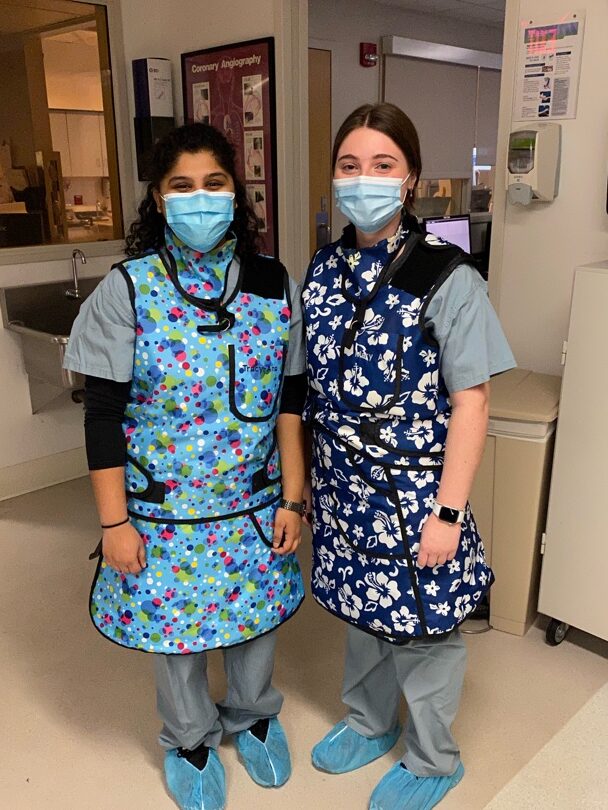
In order to go back to the store year after year, it is imperative to nurture your mental health. Medical providers, as strong as they are, are still human. In one shift they may see a child in the PICU take their last breath. They may see a 26 year old shot with gun shot wounds hanging on to the last moments of life. They may also see someone come into the world. And an elderly patient come back to life in front of their eyes. But, unfortunately the bad can out-way the good; for some more than others. Despite this, mental health resources are oftentimes not provided. And when they are, providers do not gravitate towards seeking help.
As a medical provider, you are hardwired to help people even if that means leaving yourself behind. In a perfect world, incorporating mental health check-ins once a week or at the end of each shift would be the perfect answer. But the truth is, the only way to go about fixing the broken system is honesty. This means we need to be honest when asked “how are you?” by a colleague, employee, or supervisor. Day in and day out you ask your patients to be honest with you. Why? Because when they are, providers can help them in an effective and timely manner. It’s time the medical field starts to incorporate honesty around mental health in an effort to combat this epidemic.
It isn’t until providers begin to share our struggles and triumphs that a real change can be made. The toy may not look the same as it did under the Christmas tree, but it still functions. All thanks to the time you take to maintain it.
– Maria
I have loved creating art since I was little. Art class was always one of my favorite subjects in school. I love creating art and gifting it to other people, but until this past year, I rarely made art for myself. I have come to realize, art is a form of therapy for me. Over this past year, I have begun to use creating art as a way to gage how my mental health is. I have found when I am going through a depressive episode, I stop painting completely. When I am feeling super anxious, I use painting as a way to calm my mind. I also find painting helps me feel productive on days where I feel like I cannot perform how I want to.
Recently, I created a painting on the biggest canvas I’ve ever used. Despite this painting taking weeks to finish, it gave me something to look forward to each day. Whether you are new to creating art or a pro, art can be an outlet to express your feelings and take time for yourself!
From, Maria
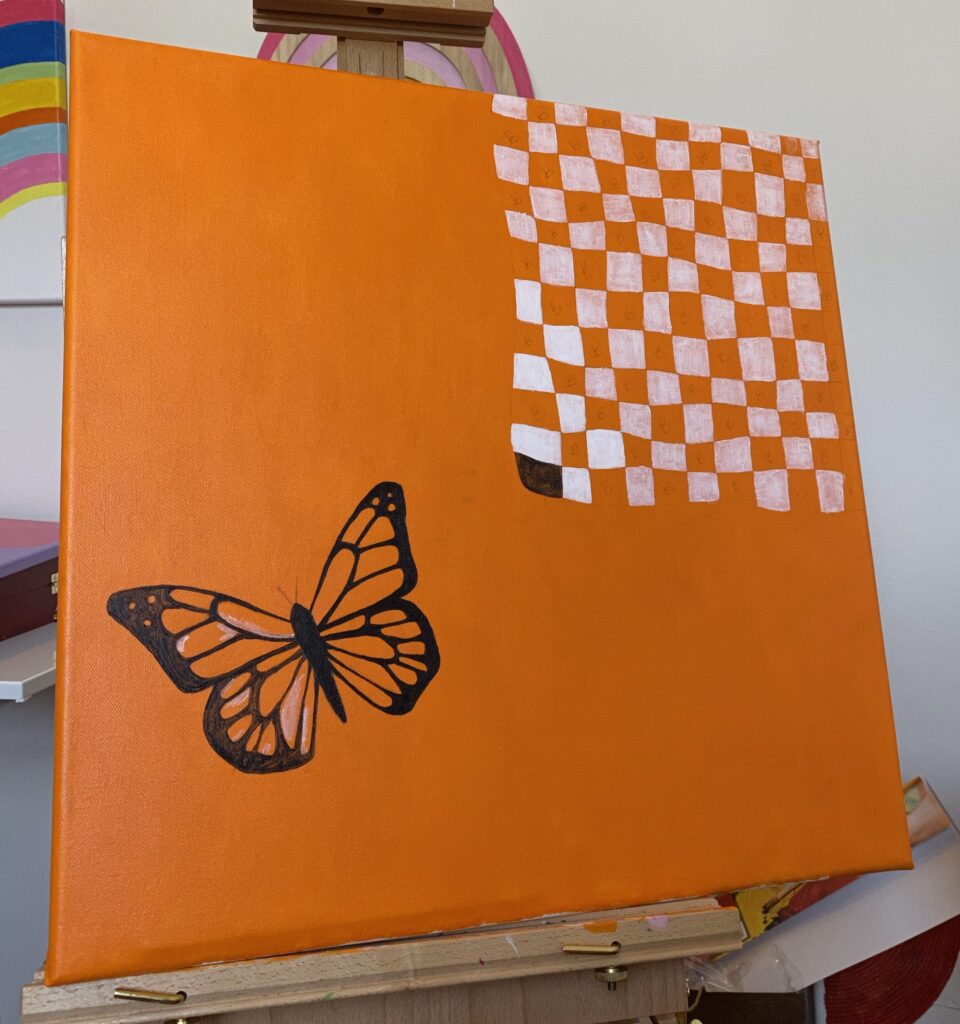




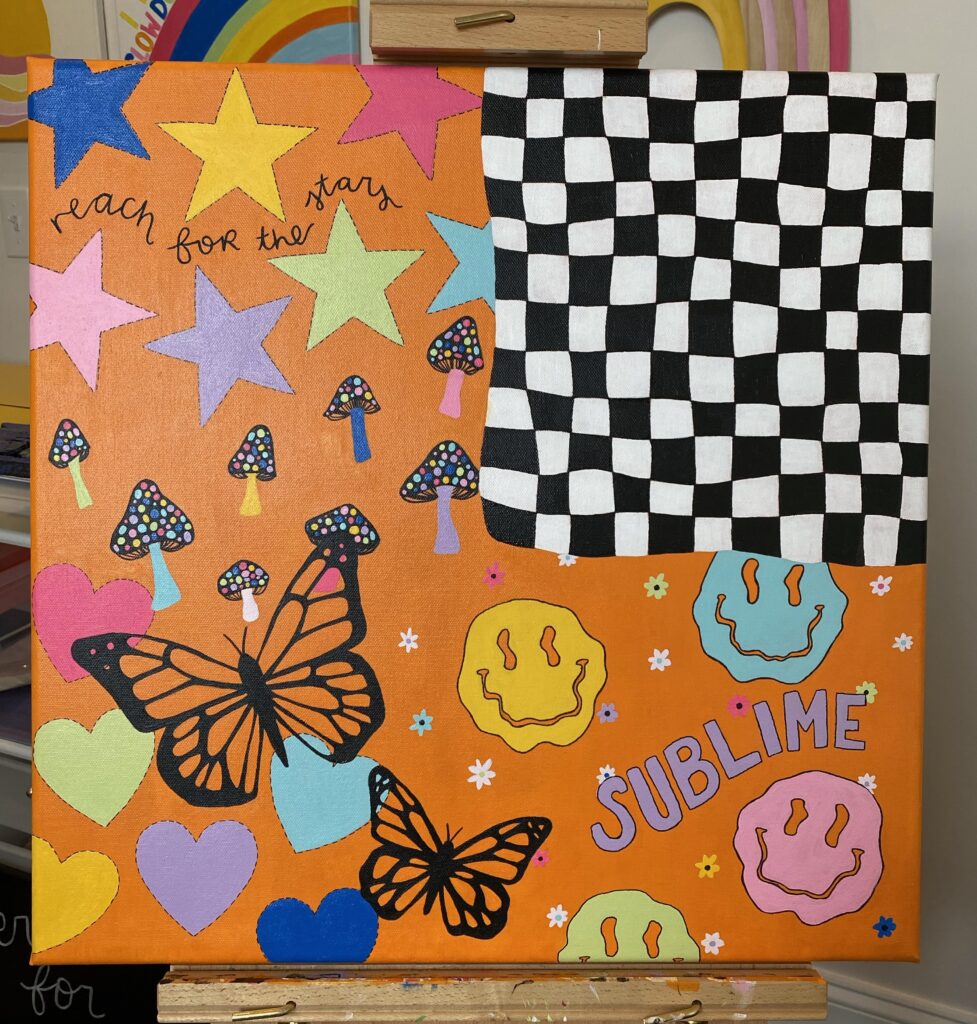
© 2025 TurningPointCT.org. All Rights Reserved.